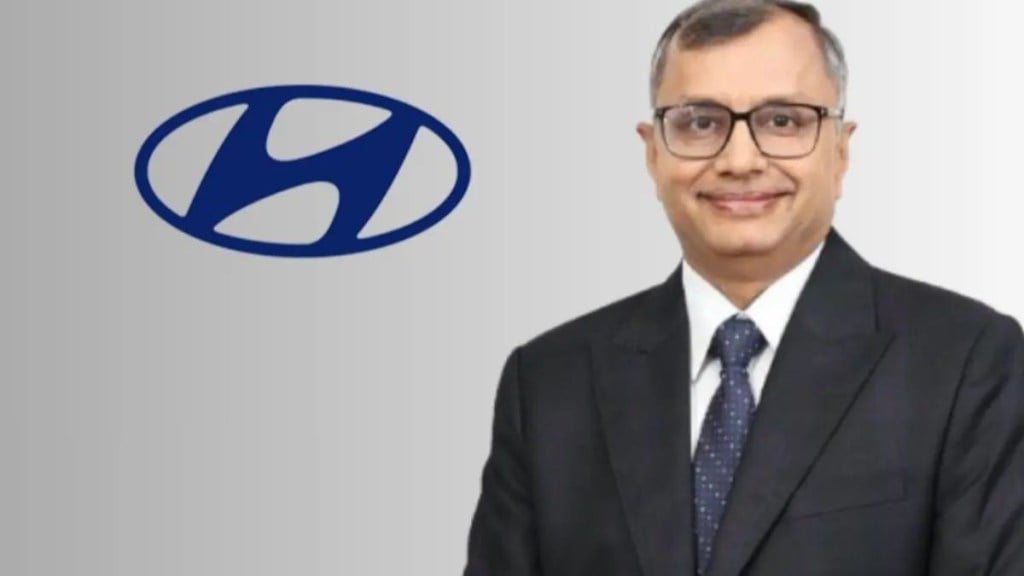Sailing through choppy waters comes easily to Tarun Garg, who is set to be the first Indian to lead Korean auto-maker Hyundai Motor India (HMIL) when he takes charge as managing director and chief executive officer in January 2026.
When he joined HMIL as director of sales, marketing and service, in 2019 just months before the Covid 19 pandemic outbreak, the company was going through its most difficult period in decades.
Passenger vehicle sales had fallen more than 13% in the first half of that year, as weak consumer sentiment amid rising vehicle prices and tight liquidity hit overall sector demand. Like its compatriots, HMIL logged a sharp drop in sales that year.
Garg, currently whole-time director & COO, HMIL, hit the ground running. Under his watch, HMIL recorded its highest-ever sales for three consecutive years, the best-ever EBITDA margin in FY24, and a successful 2024 IPO, the largest public offering in India’s equity market history.
He led the company’s drive into SUVs and oversaw the company’s acquisition of General Motors’ Talegaon plant near Pune. He has also led several key initiatives — from digitalising the retail network and expanding rural reach to introducing ADAS (advanced driver-assistance systems) features across nine models.
“He is a people-first leader who understands that success happens when you treat customers like honoured guests, empower your teams and invest for the long term,” said Unsoo Kim, managing director, HMIL, while announcing his elevation.
As Garg prepares to occupy the hot seat, the automaker is again faced with challenges. The company’s most recent performance has been a mixed bag. The quarter ended June 2025 showed net sales declining 5% and net profit dipping close to 16% compared to the previous quarter, a casualty of sluggish domestic demand.
HMIL has slipped to the fourth position in the passenger car market, behind competitors Tata Motors and Mahindra & Mahindra, besides leader Maruti Suzuki. Aggressive new model launches from rivals have helped them gain share and overtake HMIL.
But those who know Garg, a mechanical engineer from Delhi Technological University and an MBA from IIM Lucknow, say that’s just a blip, and would like to rely on his consistency and his ability to deliver under pressure, skills honed during his 25-year tenure at Maruti Suzuki India.
He began as a management trainee at the company, mastering the areas of logistics and sales planning and advanced through a series of key roles. His journey there included positions such as regional sales manager, commercial business head, national sales and network head, ultimately rising to the post of executive director of marketing, logistics, parts and accessories.
His new role will give Garg an opportunity to move past the underwhelming performance of the Alcazar and Exter. HMIL’s track record has suffered due to the lack of freshness in its product line-up, something Tata Motors nailed with brands such as the Punch and Curvv, and Mahindra with the Thar, XUV700, BE.06, and XUV.e9.
Garg also has to move the needle on perception as the company wants to be bigger than just the ‘Santo-Creta company’. “The brand needs to be seen as one with a diverse, exciting portfolio,” says a brand expert. The company has already lined up a significant `45,000 crore investment plan to expand its production, R&D, and launch 26 new models by FY30, focusing on SUVs, hybrids, and EVs, putting the world’s third-largest car market at the heart of its growth strategy.
Another key task would be to position HMIL as a trusted player in alternative fuel technologies, beyond just diesel. While its CNG offerings still face consumer skepticism, its EV presence is almost negligible. In all this, Garg must guide the company through the tightening noose of the CAFE ratings. The company could be the one of biggest penalty payers under CAFE-II due to its diesel-heavy portfolio. The upcoming CAFE-III norms will hit even harder unless a strategic course correction is made as scheduled.
A long-time acquaintance says Garg has made his stand clear to the global management and investors — that while market share is important, improving profitability would be the real win and that’s what he intends to deliver.

